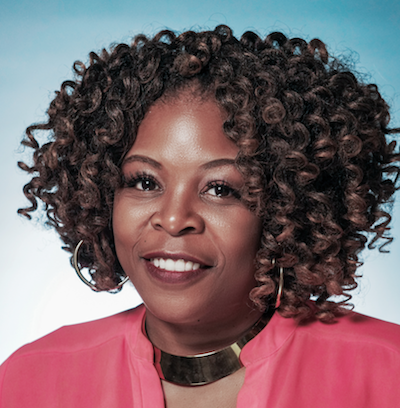![]()
[hr]
JSU creative writer Rachel James-Terry in the office of University Communications will travel to Washington, D.C., this week for a two-day conference with a distinguished panel of media professionals to collaborate on helping the Robert C. Maynard Institute for Journalism Education (MIJE) re-imagine its goals for the next decade for improved diversity in newsrooms, community coverage and other key measures.

“This is a very special assignment because I get to brainstorm with others to see where the Maynard Institute is going,” said James-Terry, who had been involved previously with the organization through its Jackson Voices program in 2011.
Looking back, she said she recalled how “diversity was lacking in stories that reflected the true landscape of Jackson, Mississippi. Now, there’s wider coverage.” said James Terry, also a contributing columnist for the Clarion Ledger.
Maynard Institute co-executive director Martin G. Reynolds said James-Terry was asked to participate in “Phase II of MIJE Re-Imagined” because of her insight and impressive evolution as a media professional.
As the institute aims to boost its engagement with news consumers concerned about culturally competent portrayals of communities of color, Reynolds said: “Rachel is the perfect person to ensure we are thinking wisely about how to connect with folks. She also has been instrumental during recent conversations with the Kettering Foundation (a nonprofit research organization) about how to better engage people to participate more fully in our democracy through storytelling. Her insights around how journalists need to rethink their role relative to community are vital.”
Other esteemed individuals attending the “re-imagined” forum include Joaquin Alvarado, CEO of the Center for Investigative Reporting; Jim Bettinger, a former director of the Knight Fellowships at Stanford University; Jim Shaffer, a former top executive of the Los Angeles Times; and Tracie Powell, founder of the allDigitocracy.com.
Additional participants are Paul Waters, a senior program officer at the Democracy Fund; Debra Adam Simmons, a former editor of the Cleveland Plain Dealer and a recent Neiman Fellow at Harvard University; Bill Cellis, associate dean of diversity at USC’s Annenberg School of Communication and Journalism; Jose Zamora, Univision vice president of communications; and Paul Cheung, the Associated Press head of Mobile. Representatives for Maynard are Reynolds and co-executive director Evelyn Hsu.
From her observation, James-Terry said, “Media must continue to tell real stories, not just about crime but human-interest stories. Coverage has gotten more salacious now, with a more intense racial bent, too,” she explained.
Furthermore, she said her concern is that media have become so much more biased today that it’s hard to find a neutral perspective. “I hope we return to giving people more of the information needed to make an informed decision.”
Her suggestions to journalists covering communities of color include building trust. “Typically, we are suspicious of media because we haven’t always been portrayed fairly. It’s up to journalists to cultivate relationships.”
In addition, James-Terry urges media professionals to “step outside their comfort zones and social circles; don’t be afraid to abuse social etiquette and be inquisitive. Take a moment to walk among the people,” she said while calling for more diverse editorial boards.
She also views the widening presence of social media as a gift and curse. While she values the benefits of social media and the speed of information today, she said she remains concerned that the public “can’t distinguish satire from legitimate news.”






